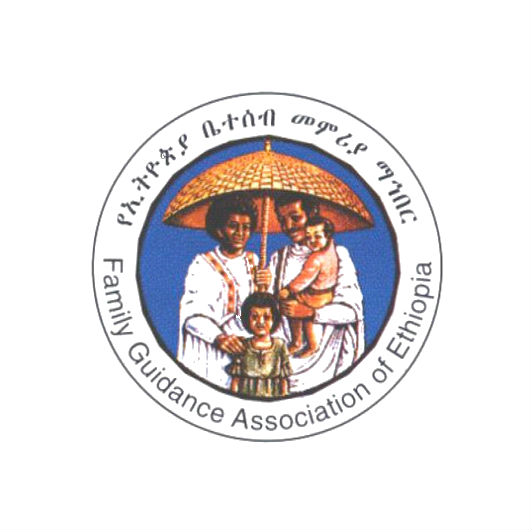

| 31 March 2016
Family Guidance Association of Ethiopia
Ethiopia, the second most populous country in Africa, and the tenth most populous in the world, has enormous sexual and reproductive health (SRH) challenges as the statistics demonstrate. The Family Guidance Association of Ethiopia (FGAE) celebrated its 50th anniversary in 2015. It has a broad reach which focuses on providing poor and marginalized populations with family planning, safe abortion care, maternal and child health care, prevention and treatment of sexually transmitted diseases (STIs) including HIV and AIDS and associated opportunistic infections. In the shape of permanent clinics, mobile facilities, community-based services (CBSs), FGAE has numerous service points. Staff, backed by over thousands volunteers, hundreds of peer educators and of community-based distributors (CBDs). There’s no disguising the fact that achieving proper SRH amongst the Ethiopian people is an exhausting uphill struggle. FGAE has the will, the determination and the backing to fight for people’s rights and welfare. Access is key to the Member Association’s activity, and it works extensively with young people to inform, educate and provide essential SRH services. FGAE also runs special projects targeted at particularly vulnerable individuals and groups: street children, people living with HIV and AIDS, sex workers, and young migrants in 8 of the 11 principal Regions in Ethiopia. FGAE partners with government, with non-governmental organisations(NGOs) including the Ministry of Health, the Ministry of Women, Children and Youth, UNFPA-Ethiopia, CARE-Ethiopia, DKT-Ethiopia, Dawn of Hope, the Ethiopian Women’s Lawyer Association, and a broad spectrum of HIV and AIDS-related operations. Private sector partners include Betezata Hospital and Janmeda/medical bio laboratories, and donors to the Member Association’s work include the Royal Netherlands Embassy, the Packard Foundation, IPPF’s Japan Trust Fund, USAID/CDC and Irish Aid. Website: www.fgaeet.org

| 31 March 2016
Family Planning Association of India
Established in 1949, the Family Planning Association of India (FPAI) is a founding member of IPPF. Its work in sexual and reproductive health (SRH) covers safe motherhood and child survival, empowerment of women, male involvement, adolescent health and youth development. FPAI works closely with non-governmental organizations (NGOs) and the government. It runs 39 permanent clinics, 101 mobile facilities, and has a network of nearly 2,700 community-based distributors /services (CBDs/CBSs). It works with 563 private practitioners and 196 other agencies. In addition, FPAI operates 3 infertility clinics, a contraceptive retail sales programme, and a condom dispensing service. In total, FPAI operates over 4,000 service points. A community-centred approach is at the core of FPAI's work. Our programmes are designed to deliver improved health and standards of living, better decision-making, and greater self-reliance. It aims to enable men and women to form local voluntary groups to initiate action in communities. Work primarily focuses on under-served rural areas and urban slums. The organization exploits a variety of media to impart its message, including film, radio, newsletters, journals and other print materials, as part of a wide-ranging education programme addressing topics such as family planning, maternal and child health, the risks of unsafe abortion, infertility, the prevention of sexually transmitted infections (STIs) and counselling for newlyweds. FPAI encourages the empowerment of women through mahila mandals (women's groups), balwadis (nursery schools), and literacy and income generation programmes. It’s been addressing the concerns of young people in a holistic manner through 30 Sexuality Education, Counselling, Research, Training/Therapy (SECRT) Centres spread acrosss the country. The centres offer youth-friendly services that prepare young people for their future by building the confidence and self-esteem essential to forging healthy relationships. They also offer counselling and information on various developmental issues, including sex, coping with preer pressure, relationships, responsible sexual behaviour, marriage, parenthood, contraception and the prevention of STIs including HIV and AIDS. As an advocate, FPAI exerts influence through community representatives, through the media, and through representation on government bodies such as the Central Health and Welfare Council and Steering Committee on Population Education. Contacts Website: http://fpaindia.org/ Facebook: https://www.facebook.com/FPAI.national







